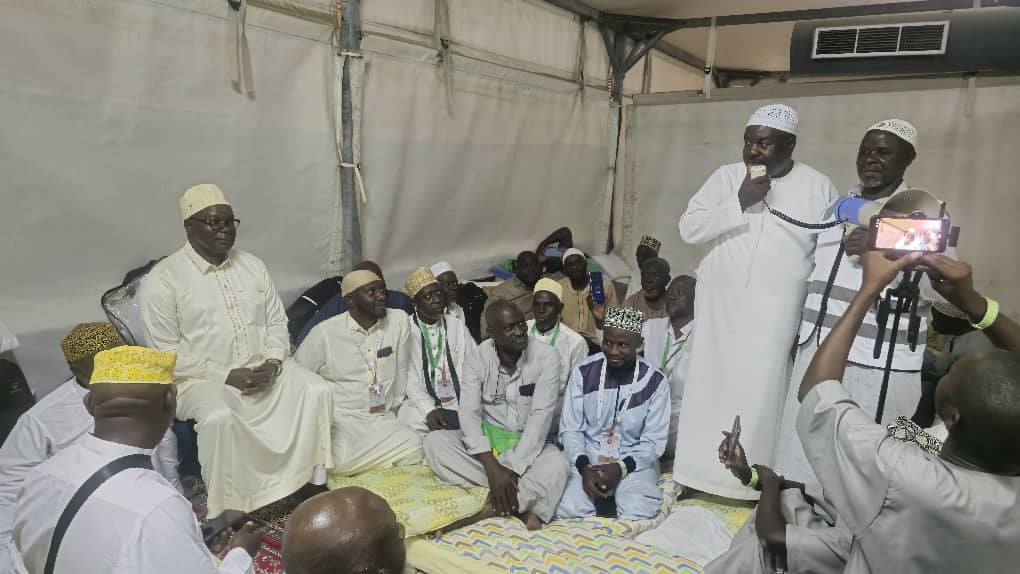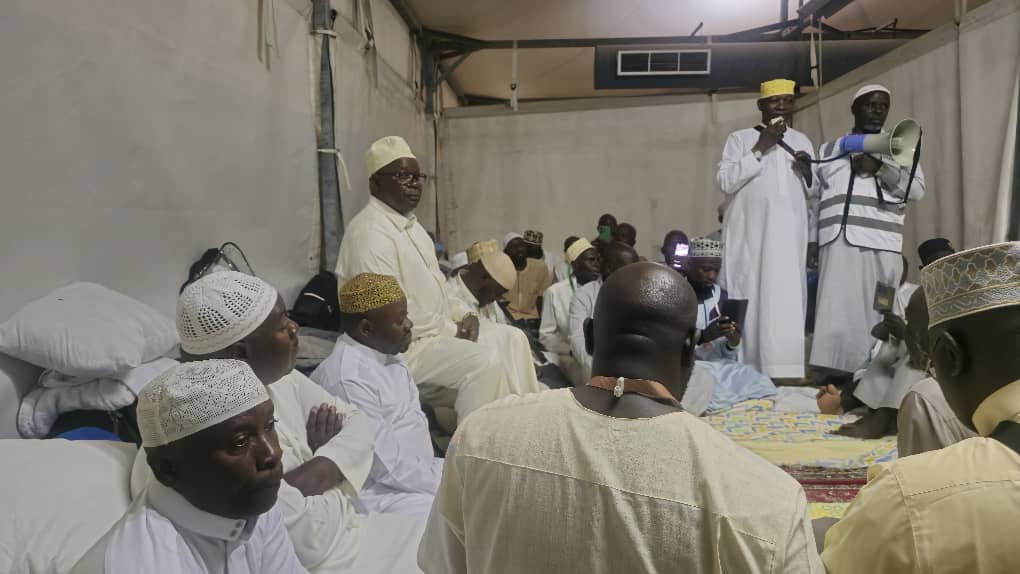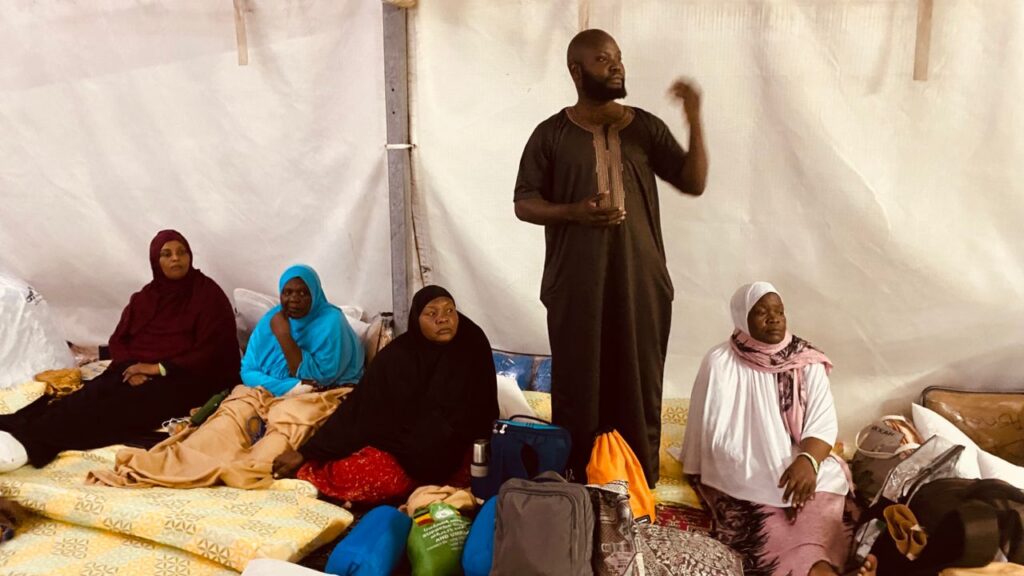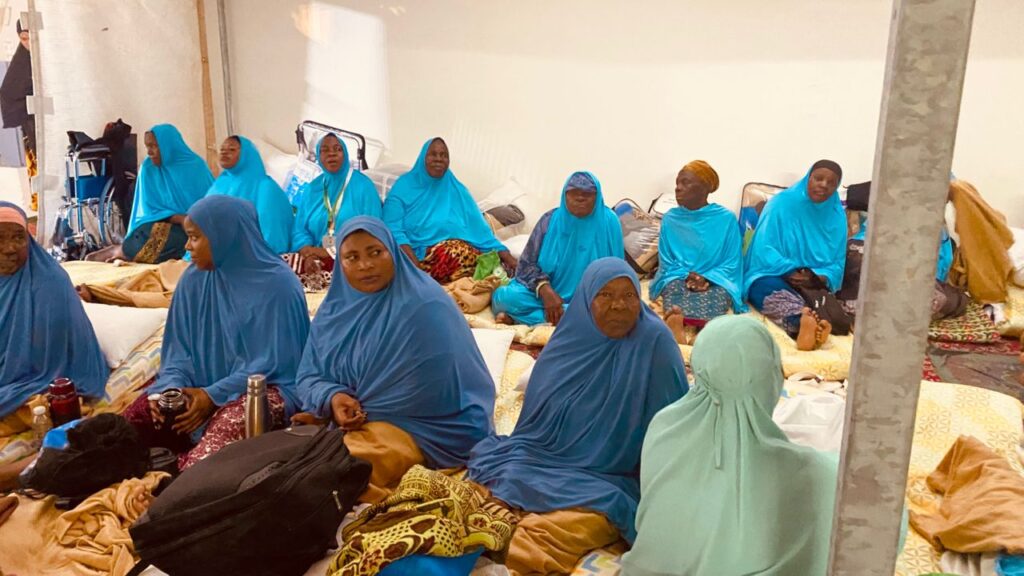
SAUDI ARABIA .
Uganda’s Ambassador to the Royal Kingdom of Saudi Arabia, Isaac Biruma Sebulime has called on all stakeholders involved in Hajj Affairs to exercise transparency in managing this critical pillar of the Islamic faith.
Ambassador Sebulime made the remarks while bidding farewell to Ugandan pilgrims who have successfully reached the final stages of the Hajj rituals , including the symbolic stoning of the three pillars—an act symbolising the rejection of Satan.
The Ambassador, accompanied by his Deputy, His Excellency Sheikh Sulaiman Gugwa, met the pilgrims in the Tent City of Mina on the evening of Saturday, June 7, shortly after they had performed their last obligatory Isha prayers in the sacred land.

In his address, Ambassador Sebulime reflected on the formation of the Uganda Hajj Bureau in 2000. “At that time, there was no centralised body managing Hajj affairs. Yet the Saudi Government required each Hajj company to deposit a specific amount as security before being allowed to operate,” he explained.
“The Ugandan Embassy proposed the formation of a unified body—what is now known as the Uganda Hajj Bureau.”
While noting the Bureau’s achievements over the years, the Ambassador also highlighted existing gaps that require urgent attention to improve service delivery.
This came in response to a Bureau officer’s earlier remarks defending the organization, which appeared to rebut a statement made by His Eminence Sheikh Shaban Ramadhan Mubajje, the Mufti of Uganda, during his Idd-ul-Adhuha message.

The Mufti had cited concerns about alleged mismanagement and corruption, particularly regarding the handling of Hajj visas—an issue that has left many pilgrims stranded despite having paid in full.
Ambassador Sebulime assured the pilgrims that the Embassy would engage the Mufti to facilitate a roundtable discussion involving all stakeholders to address the challenges. “We still need the Bureau to continue its operations,” he emphasized, while also urging Hajj companies to observe transparency and adhere strictly to the timelines set by the Saudi Government.
He stressed that late payments have historically made it difficult for Saudi authorities to extend deadlines, thus preventing some Ugandans from participating in the rituals.
Prior to the Ambassador’s address, Hajj Abbas Muluubya Ssekyanzi, UMSC Secretary General, reaffirmed the Council’s commitment to improving Hajj services. He pledged that the UMSC was open to engaging with the Uganda Hajj Bureau to find sustainable solutions to the issues at hand.

Meanwhile, Sheikh Zakaria Kyewalyanga, the head of the Uganda Hajj Bureau, acknowledged the challenges faced during this year’s Hajj. He thanked the Ugandan pilgrims for their exemplary conduct and discipline throughout the pilgrimage.
Among the pilgrims were several Khadis and Muslim leaders, including Regional Assistants to the Mufti for the Eastern and Northern regions; District Khadis from Nakawa, Luweero, Nakasongola, Rukungiri, Kiruhura, Jinja, Sironko, and Madi (Adjumani); Hajjat Sophie Safina Kenyangi, National Chairperson of the Muslim Women Council; Muslim women representatives for West Buganda and the Northern region;
members of the UMSC General Assembly; Sheikh Twaha Uthuman, the South Sudan Special Envoy of the Mufti; Haj Badru Mugabi Residence District Commissioner – RCC Hoima City, Sheikhat Raddiyya Namakula, UMSC Secretary for Women and Children; several Deputy Khadis, County Sheikhs, Imams, high-profile professionals, and other distinguished figures.Some of these were sponsored by President Museveni .
The colourful farewell event concluded with special prayers dedicated to the pilgrims as they prepare to return home.